class: center, middle, inverse, title-slide # Dirty Wars ## Lecture 9: Identity, Identification, and Intelligence Institutions ### Jack McDonald ### 2019-11-22 --- class: inverse # Small Group Discussion .question[ What, if anything, is wrong with secret wars, or undeclared uses of force by states? ] ??? --- class: inverse # Outline .pull-left[ What we now "see" as dirty war is the result of identification practices, that emerged as a problem in modernity ] .pull-right[ - Intelligence and Identification - Governing Intelligence Institutions - Intelligence Dillemmas ] ??? --- # Line of Argument .pull-left[ Remember these? - The applicability problem - Which set of rules apply to a given conflict? - The interpretation problem - How should rules produce (or remove) actionable constraints on conflict? - The identification problem - To what extent can institutions and individuals ensure the correct identification of permissible targets? - The decision problem - Who, or what, makes the key decisions? ] .pull-right[ Selective violence requires intelligence that enables reliable identification of legitimate targets. It is possible to examine many of the theoretical aspects of dirty wars through the prism of intelligence institutions. Evaluating institutional responses to underlying intelligence dillemmas demonstrates the importance of norms in dirty wars. ] ??? --- class: inverse # Part 1: Intelligence and Identification ??? --- # Secret Wars and Silence (Vietnam, GWOT) .pull-left[ 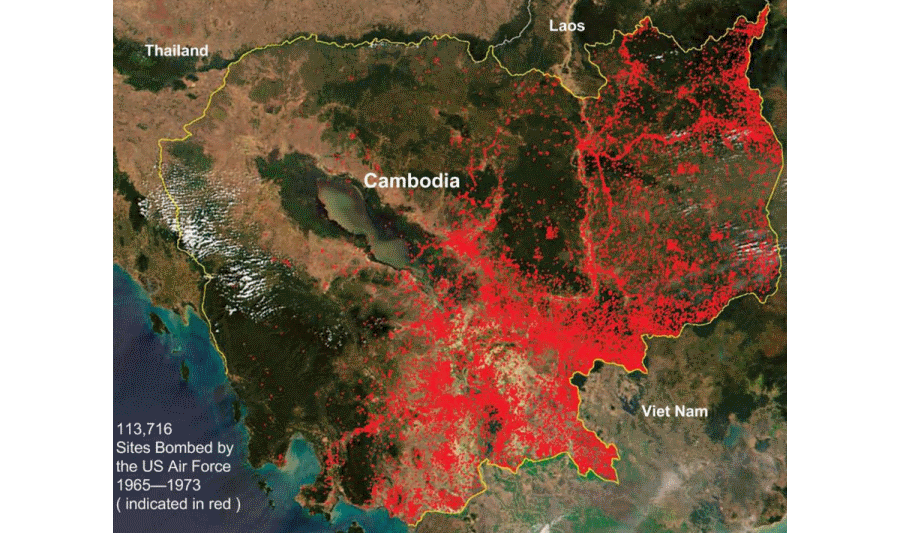 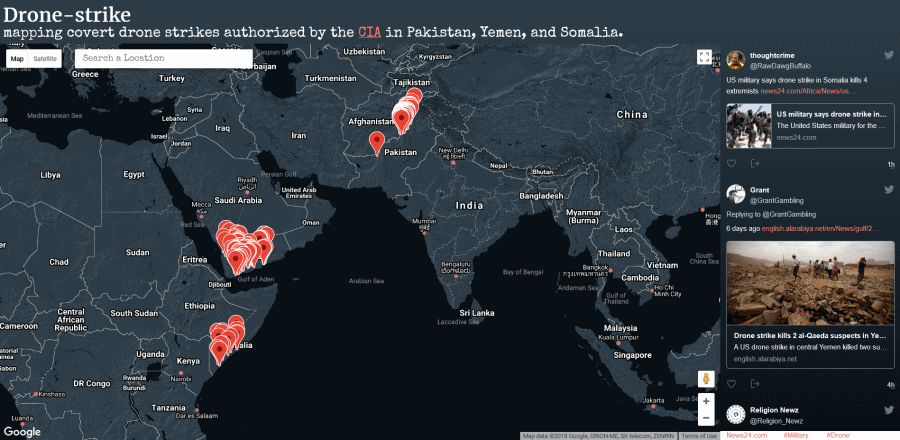 ] -- .pull-right[ A few points: - Disentangling diplomatic/political/strategic reasons for secrecy from institutional, operational or tactical reasons can be difficult - It is almost always impossible to reconstruct uncertainty - Intelligence studies can be a rorschach test ] ??? --- # Intelligence in War and National Security .pull-left[ > Intelligence is information and information gathering, not _doing_ things to people; no one gets hurt by it, at least not directly. Some agencies do indeed carry out covert action, which confuses the ethical issues, but this is a separable and subsidiary function. Michael Herman, _Ethics and Intelligence after September 2001_ ] .pull-right[ Is non-violent intelligence collection harm-free? What is the purpose of intelligence and intelligence collection? The co-construction of political threats ] ??? --- # The Private Holmes Problem .pull-left[  How does an individual know who/what is, or is not, a permissible target? ] -- .pull-right[ How does an organisation "know" about the external world? Intelligence production requires internal and external coordination Standards of truth and knowledge production are a mix of internal and external factors ] ??? --- # Institutions in Security Studies .pull-left[ .medium[ Max Weber - Offered an idealised model of rational, hierarchical bureaucracy Herbert Simon - Identifies the decision-making process as the central feature of bureaucracy - Organisations make value judgements (selecting goals) and factual judgements (paths to pursuing goals) - Bounded-rationality and satisficing as forms of decision-making, efficiency is a key element of organisations - Organisations require equilibrium (sustaining themselves with resources) ] ] .pull-right[ .medium[ James Q. Wilson - Explains organisational behaviour as interaction between rank-and-file, managers, and leaders - The observability of outputs and outcomes produces different types of organisation | | Observable Outcomes | Unobservable Outcomes | | --- | :---: | :---: | | Observable Input | Production | Procedural | | Unobservable Input | Craft | Coping | ] ] ??? --- # Identity and Identification .pull-left[  Constitutional law, international law, ethics, politics and strategy all contain different overlapping categories of persons ] -- .pull-right[  ] ??? --- class: inverse # Small Group Discussion .question[ Is "intelligence ethics" a contradiction in terms? ] ??? --- class: inverse # Part 2: Governing Intelligence Institutions ??? --- # Norms and Institutions .pull-left[  .medium[ > Rules and responsibilities: these are the ties that bind us. We do what we do, because of who we are. If we did otherwise, we would not be ourselves. Neil Gaiman, _The Sandman: The Kindly Ones_ ] ] .pull-right[  .medium[ > Democracies do not make war on the basis of legal memos locked in a D.O.J. safe. Michael Hayden ] ] ??? International norms Polity values Institutional norms Personal values The Troubles - Institutional "capture" by protestants (RUC, USC, UDR) - Institutional cultures - Inter-Institution Competition - Civil Military Relations asd --- # Just and Unjust Surveillance .pull-left[ .medium[ > Why should intelligence need any distinctive ethical consideration, any more than do other governmental activities like diplomacy, bureaucratic administration or military procurement? The answer lies in the characteristic already noted: that its effective practice seems unavoidably to entail doing some things that are plainly and seriously contrary to the moral rules accepted as governing most human activity. Michael Quinlan, _Just intelligence: Prolegomena to an ethical theory_ ] ] -- .pull-right[ > Suppose now that there were two such magic rings, and the just put on one of them and the unjust the other; no man can be imagined to be of such an iron nature that he would stand fast in justice. Glaucon, in Plato, _Republic_ ] ??? Are some intelligence activities inherently wrong? --- # Surveillance, Coercion and Repression .left-column[ 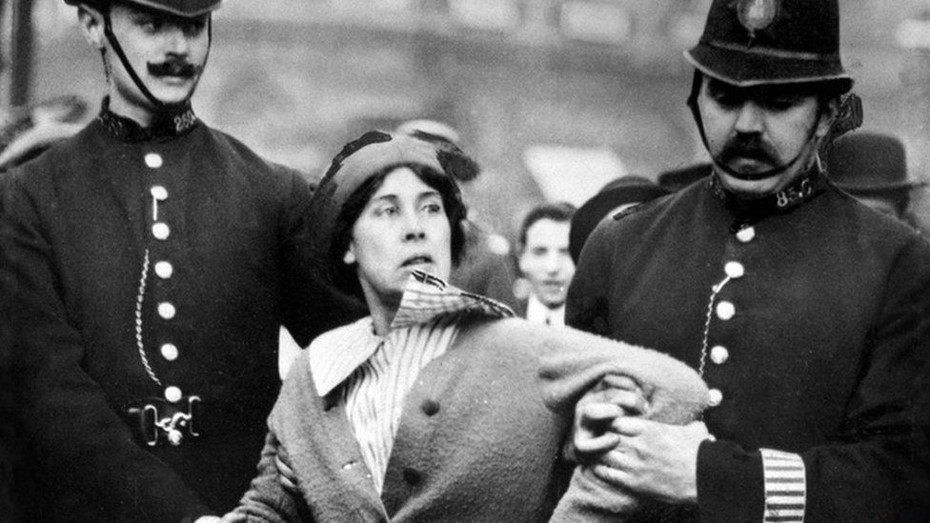   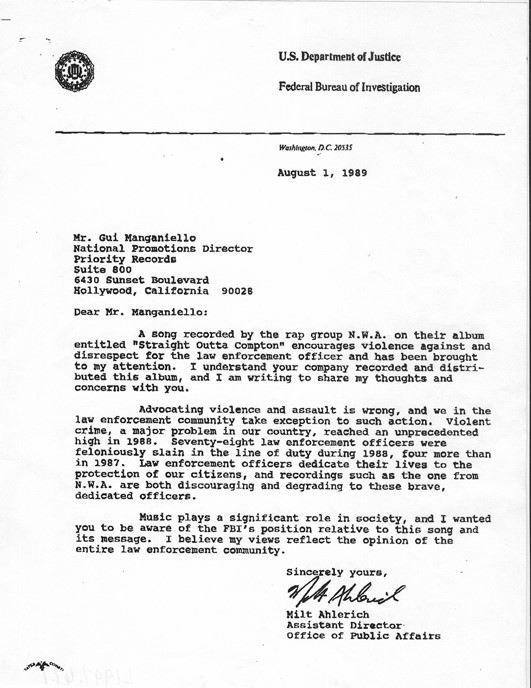 ] .right-column[ > In Hitler's Third Reich it is estimated that there was one Gestapo agent for every 2000 citizens, and in Stalin's USSR there was one KGB agent for every 5830 people. In the GDR, there was one Stasi officer or informant for every sixty-three people. If part-time informers are included, some estimates have the ratio as high as one informer for every 6.5 citizens. Anna Funder, _Stasiland_ ] ??? Binds of intelligence organisations --- # Legitimacy & Accountability (Argentina) .pull-left[ .medium[ > Considerations of national security took precedence over personal security and individual rights. The militarization of society signified the suspension of such important civil liberties as freedom of movement and the press. To dragnets and roadblocks was added censorship, concealed as well as open, voluntary and imposed. Censorship applied to public radio, television, and cinema and to private correspondence, telephone conversations, and street talk. Donald C. Hodges, _Argentina's "Dirty War"_ ] ] .pull-right[ > Much must remain inaccessible, out of the public sight, behind closed doors. The public should be able to find out what the law does and does not allow, but greater transparency of everyday operations would be self-defeating. David Omand, _Principled Spying_ ] ??? Hodges quote p. 126 Omand quote p.200 Ways of overcoming binds of intel orgs --- class: inverse # Small Group Discussion .question[ Are there any inescapable intelligence dillemmas specific to internal conflicts? ] ??? --- class: inverse # Part 3: Intelligence Dillemmas ??? --- # Blind Leviathans (N.I.) .left-column[    ] .right-column[ > A key paradox of civil war is that it increases the need for monitoring the population while simultaneously undermining the actors' capacity to do so... Decentralization produces more local information, but it simultaneously generates problems of moral hazard because inaccurate information leads to indiscriminate violence, causing counterproductive effects. Stathis Kalyvas, _The Logic of Violence in Civil War_ ] ??? Kalyvas quote p.183 Irreducible dillemma - how do you not get played? Irreducible tension - efficiency vs integrity/Security Irreducible threat - connection with society vs infiltration --- # The Twilight World (GWOT) .pull-left[   ] .pull-right[ > For as long as people have been writing about war and statecraft, the value of secret agents and undercover sources has been recognized. Mark Phythian, _Principled Spying_ ] ??? Phythian quote p.110 --- # Over/Under Collection .left-column[   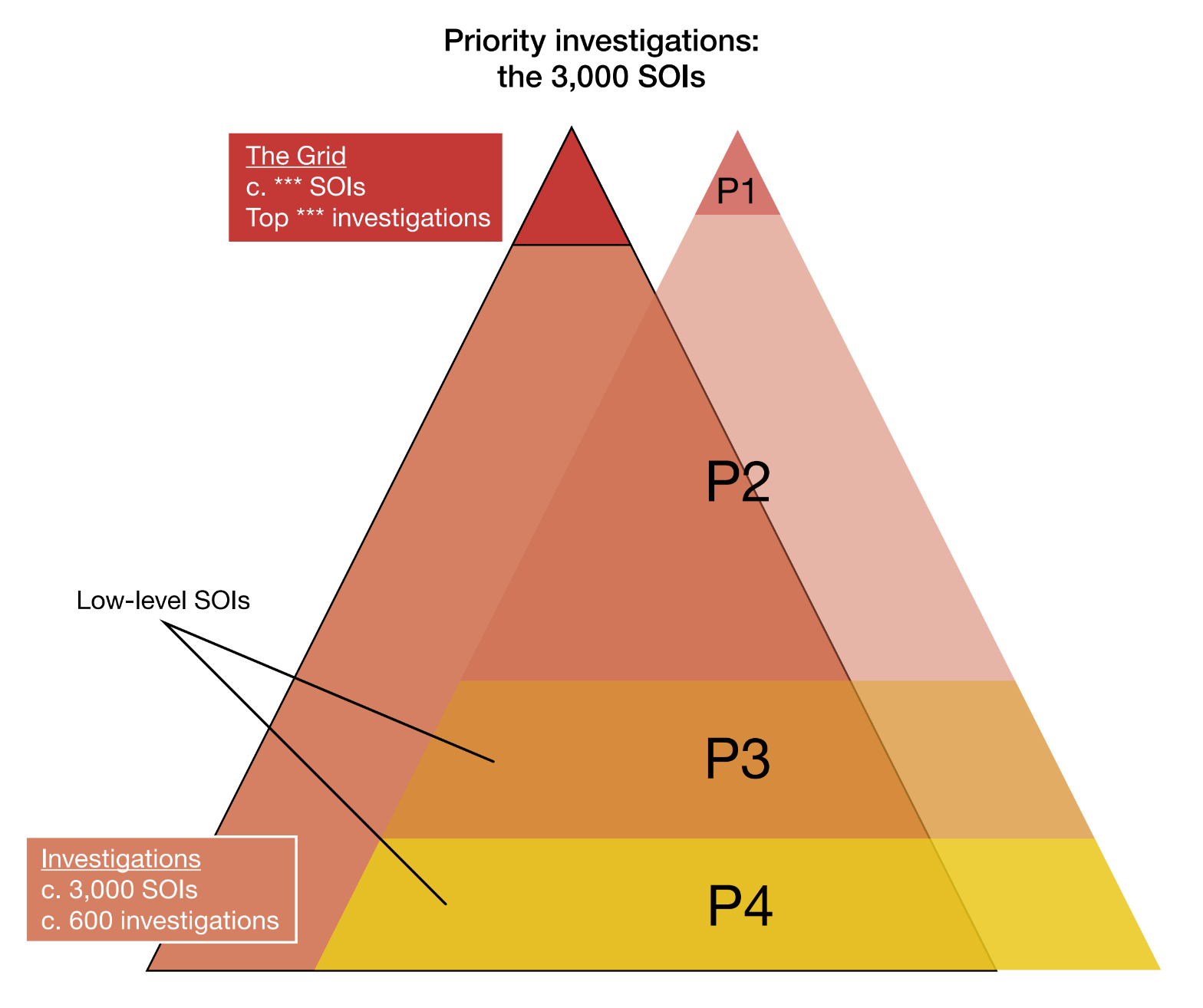 ] .right-column[ .medium[ > Bulk powers give the police and security agencies the ability to carry out population wide surveillance. Surveillance should be targeted towards those who are suspected of carrying out a crime. Don't Spy On Us coalition > We urge MI5 to consider what more can be done to connect those seen on the peripheries of investigations, including what processes they need to have in place to take account of the cumulative effect of an individual appearing on the periphery of numerous investigations. Intelligence & Security Committee, _The 2017 Attacks: What Needs to Change?_ ] ] ??? https://docs.google.com/a/independent.gov.uk/viewer?a=v&pid=sites&srcid=aW5kZXBlbmRlbnQuZ292LnVrfGlzY3xneDo1ZGExOTdmNDdhMGJhNDZh The non-existent goldilocks point Risk and risk management --- # False Positives .pull-left[ > It is better that ten guilty persons escape than that one innocent suffer. William Blackstone, _Commentaries on the Laws of England_ ] .pull-right[ > ...the difference between judicial and intelligence truth. Michael Hayden ] ??? How do you overcome/account for mistakes? Public/private accountability